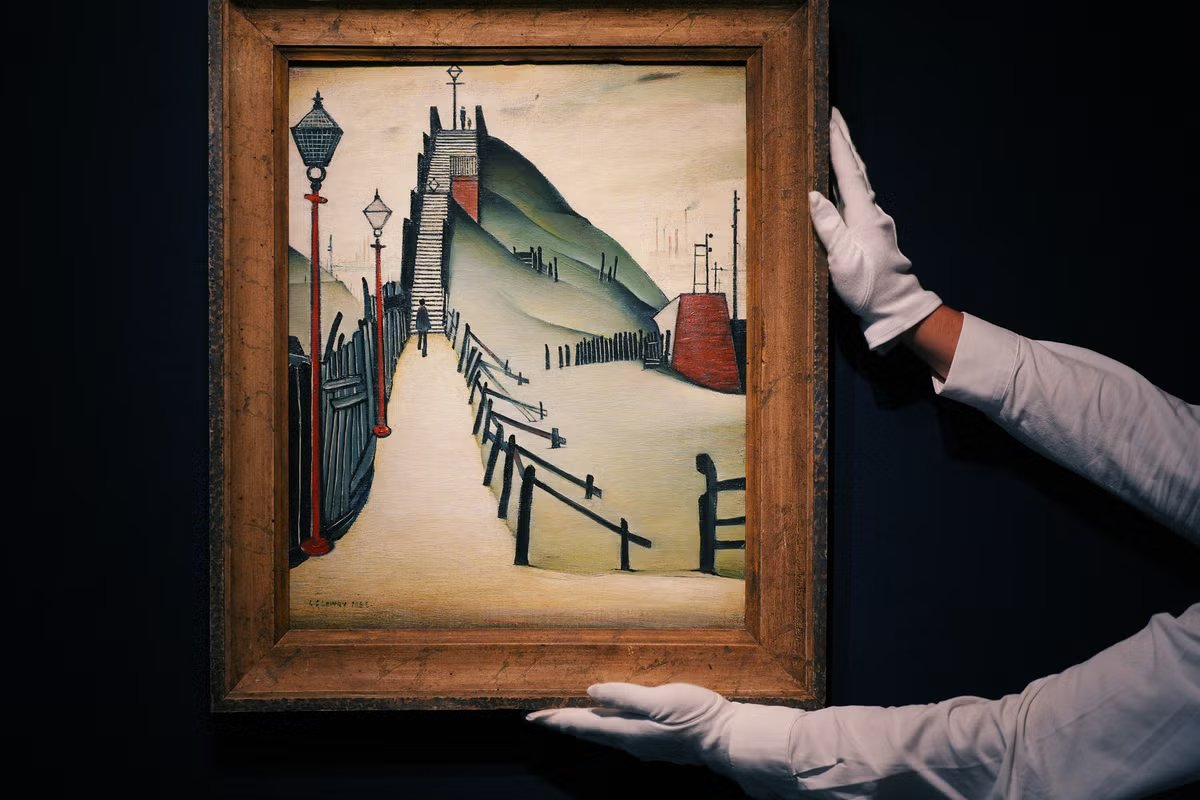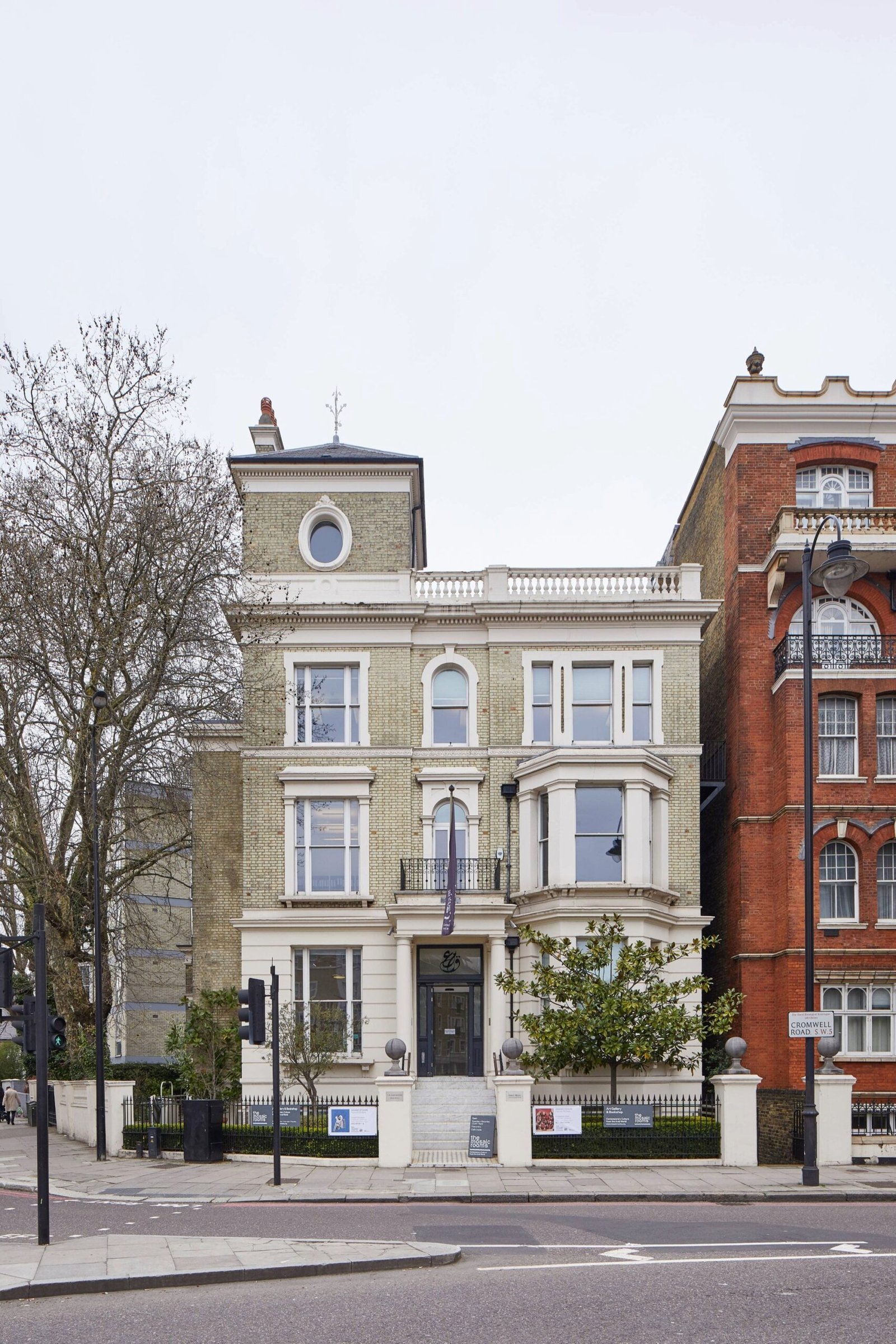People say to me often enough: If you want to make your art succeed and flourish, you must make it the fashion; a phrase which I confess annoys me: for they mean by it that I should spend one day over my work to two days in trying to convince rich, and supposed influential people, that they cared very much for what they do not care in the least, so that it may happen according to the proverb: Bell-wether took the leap and we all went over.
Well, such advisers are right if they are content with the thing lasting but a little while; say till you can make a little money — if you don’t get pinched by the door shutting too quickly: otherwise they are wrong: the people they are thinking of have too many strings to their bow and can turn their backs too easily on a thing that fails, for it to be safe work trusting to their whims: it is not their fault, they cannot help it, but they have no chance of spending time enough over the arts to know anything practical of them, and they must of necessity be in the hands of those who spend their time in pushing fashion this way and that for their own advantage.
Sirs, there is no help to be got out of these latter, or those who let themselves be led by them: the only real help for the decorative arts must come from those who work in them; nor must they be led, they must lead.
You whose hands make those things that should be works of art, you must be all artists and good artists before the public at large can take real interest in such things; and when you have become so, I promise you that you shall lead the fashion; fashion shall follow your hands obediently enough.
I know what stupendous difficulties social and economical there are in the way of this; yet I think that they seem to be greater than they are: and of one thing I am sure, that no real living decorative art is possible if this is impossible…
Is money to be gathered? cut down the pleasant trees among the houses, pull down ancient and venerable buildings for the money that a few square yards of London dirt will fetch, blacken rivers, hide the sun and poison the air with smoke and worse, and it’s nobody’s business to see to it or mend it: that is all that modern commerce, the counting-house forgetful of the workshop, will do for us herein.
And Science—we have loved her well, and followed her diligently, what will she do? I fear she is so much in the pay of the counting-house, the counting-house and the drill-sergeant, that she is too busy, and will for the present do nothing. Yet there are matters which I should have thought easy for her, say for example teaching Manchester how to consume its own smoke, or Leeds how to get rid of its superfluous black dye without turning it into the river, which would be as much worth her attention as the production of the heaviest of heavy black silks, or the biggest of useless guns.
Anyhow, however it be done, unless people care about carrying on their business without making the world hideous, how can they care about art? I know it will cost much both of time and money to better these things even a little; but I do not see how these can be better spent than in making life cheerful and honourable for others and for ourselves; and the gain of good life to the country at large that would result from men seriously setting about the bettering of the decency of our big towns would be priceless, even if nothing specially good befell the arts in consequence: I do not know that it would; but I should begin to think matters hopeful if men turned their attention to such things, and I repeat, that unless they do so, we can scarcely even begin with any hope our endeavours for the bettering of the Arts.
Until something or other is done to give all men some pleasure for the eyes and rest for the mind in the aspect of their own and their neighbours’ houses, until the contrast is less disgraceful between the fields where beasts live and the streets where men live, I suppose that the practice of the arts must be mainly kept in the hands of a few highly cultivated men, who can go often to beautiful places, whose education enables them, in the contemplation of the past glories of the world, to shut out from their view the everyday squalors that the most of men move in.
Sirs, I believe that art has such sympathy with cheerful freedom, open-heartedness, and reality, so much she sickens under selfishness and luxury, that she will not live thus isolated and exclusive. I will go further than this, and say that on such terms I do not wish her to live. I protest that it would be a shame to an honest artist to enjoy what he had huddled up to himself of such art, as it would be for a rich man to sit and eat dainty food amongst starving soldiers in a beleaguered fort.
I do not want art for a few, any more than education for a few, or freedom for a few.
No, rather than art should live this poor thin life among a few exceptional men, despising those beneath them for an ignorance for which they themselves are responsible, for a brutality that they will not struggle with, — rather than this, I would that the world should indeed sweep away all art for a while, as I said before I thought it possible she might do: rather than the wheat should rot in the miser’s granary, I would that the earth had it, that it might yet have a chance to quicken in the dark.
I have a sort of faith that a clearing away of all art will not happen, that men will get wiser, as well as more learned; that many of the intricacies of life, on which we now pride ourselves more than enough, partly because they are new, partly because they have come with the gain of better things, will be cast aside as having played their part, and being useful no longer. I hope that we shall have leisure from war, — war commercial, as well as war of the bullet and the bayonet; leisure from the knowledge that darkens counsel; leisure above all from the greed of money, and the craving for that overwhelming distinction that money now brings: I believe that, as we have even now partly achieved liberty, so we shall achieve equality, and best of all, fraternity, and so have leisure from poverty and all its griping, sordid cares.
Then, having leisure from all these things, amidst renewed simplicity of life we shall have leisure to think about our work, that faithful daily companion, which no man any longer will venture to call the curse of labour: for surely then we shall be happy in it, each in his place, no man grudging at another; no one bidden to be any man’s servant, everyone scorning to be any man’s master: men will then assuredly be happy in their work, and that happiness will assuredly bring forth decorative, noble, popular art.
That art will make our streets as beautiful as the woods, as elevating as the mountain-sides: it will be a pleasure and a rest, and not a weight upon the spirits to come from the open country into a town; every man’s house will be fair and decent, soothing to his mind and helpful to his work: all the works of man that we live amongst and handle will be in harmony with nature, will be reasonable and beautiful: yet all will be simple and inspiriting, not childish or enervating; for as nothing of beauty and splendour that man’s mind and hand may compass shall be wanted from our public buildings, so in no private dwelling will there be any signs of waste, pomp, or insolence, and every man will have his share of the best.







